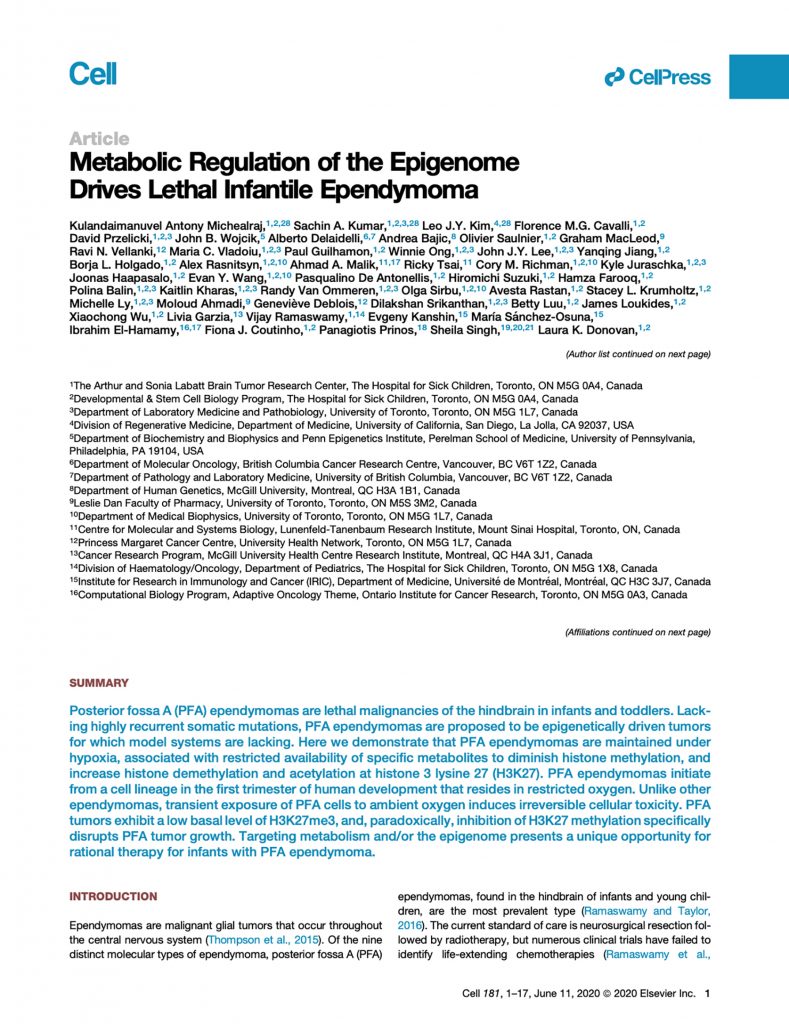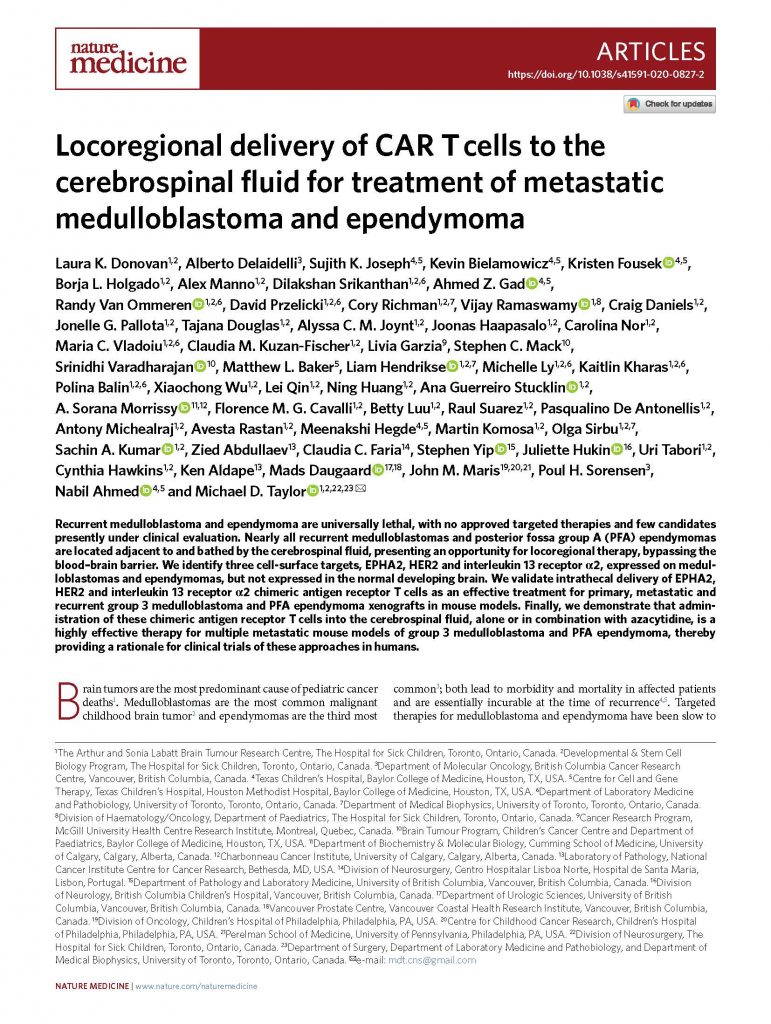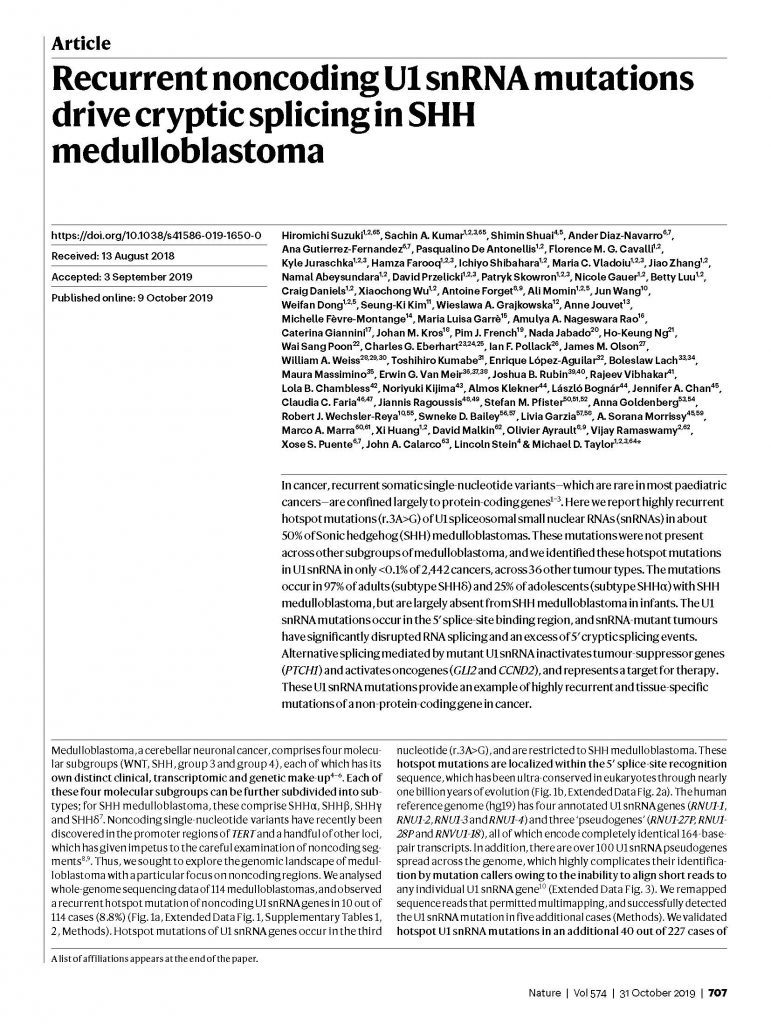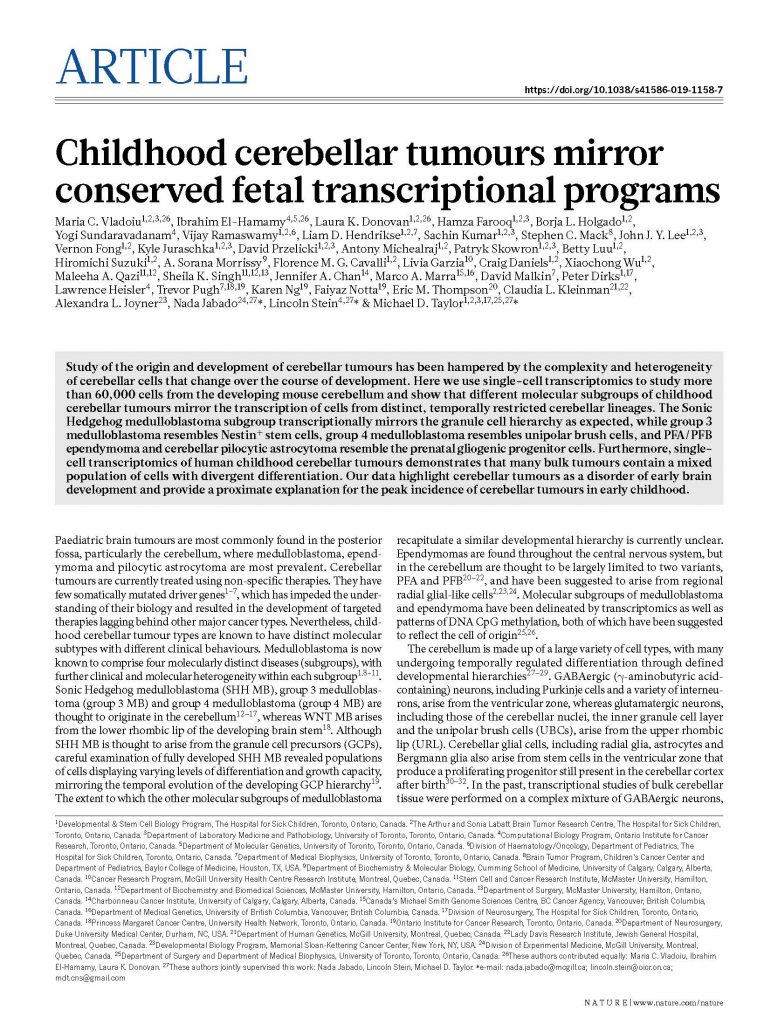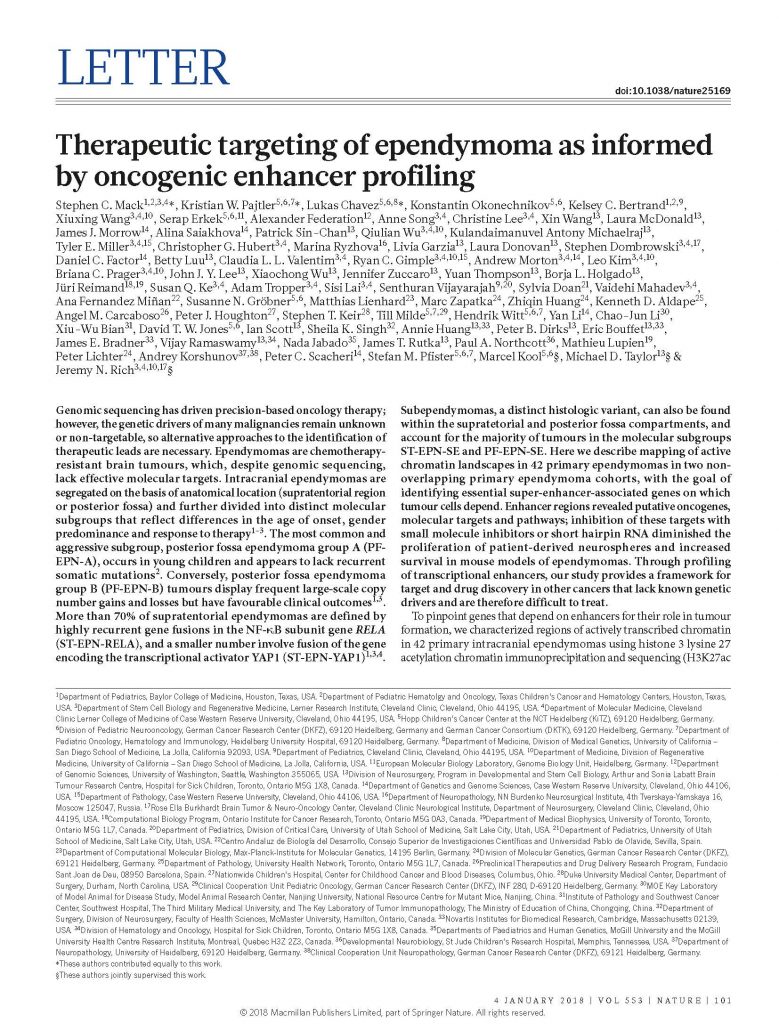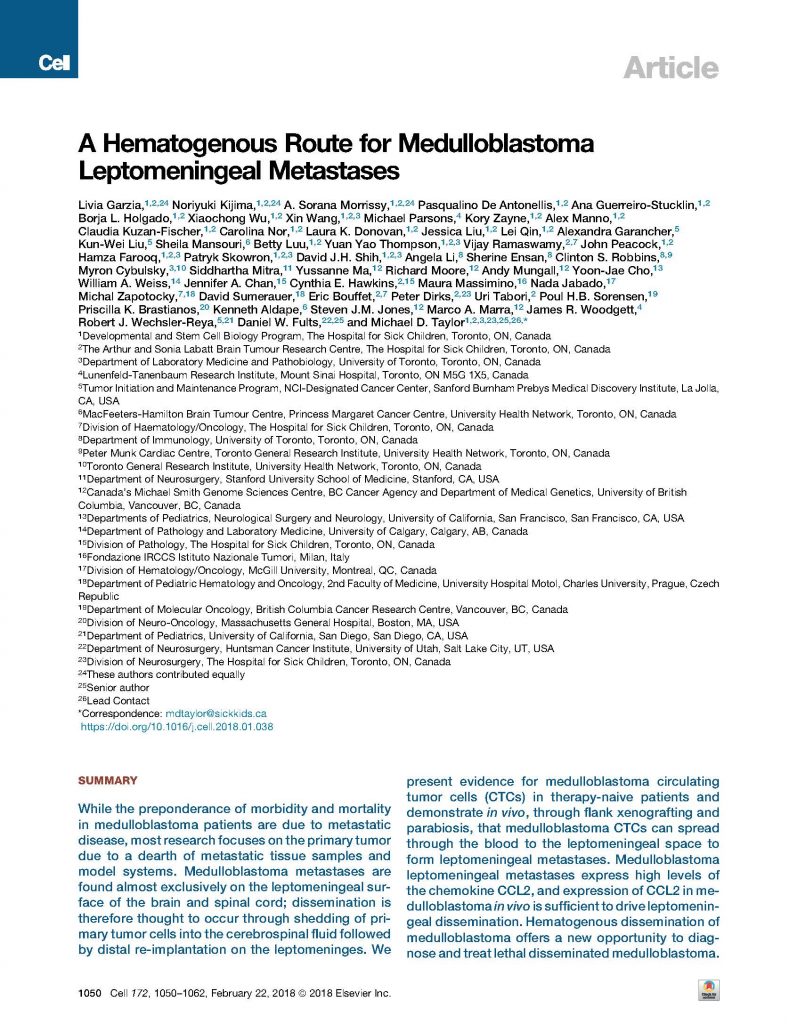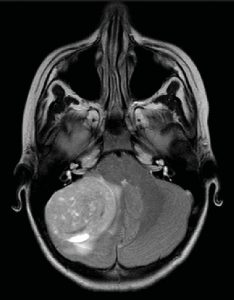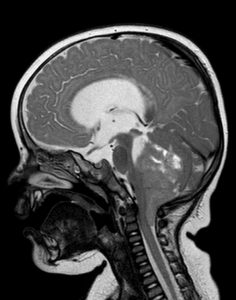Understanding the biology of brain tumours
The Taylor Lab uses genetic tools to investigate how normal cells are turned into brain tumours. Genomic analyses and genetic tools allow us to create new models of medulloblastoma and ependymoma so that novel targeted therapies can be developed. This multi-layered approach using laboratory-driven scientific discovery and bioinformatics allows for rapid, clinically-important changes to brain tumour therapy. Our research helps to drastically improve the quality of life of paediatric patients.
The Taylor Lab uses genetic tools to investigate how normal cells are turned into brain tumours. Genomic analyses and genetic tools allow us to create new models of medulloblastoma and ependymoma so that novel targeted therapies can be developed. This multi-layered approach using laboratory-driven scientific discovery and bioinformatics allows for rapid, clinically-important changes to brain tumour therapy. Our research helps to drastically improve the quality of life of paediatric patients.



